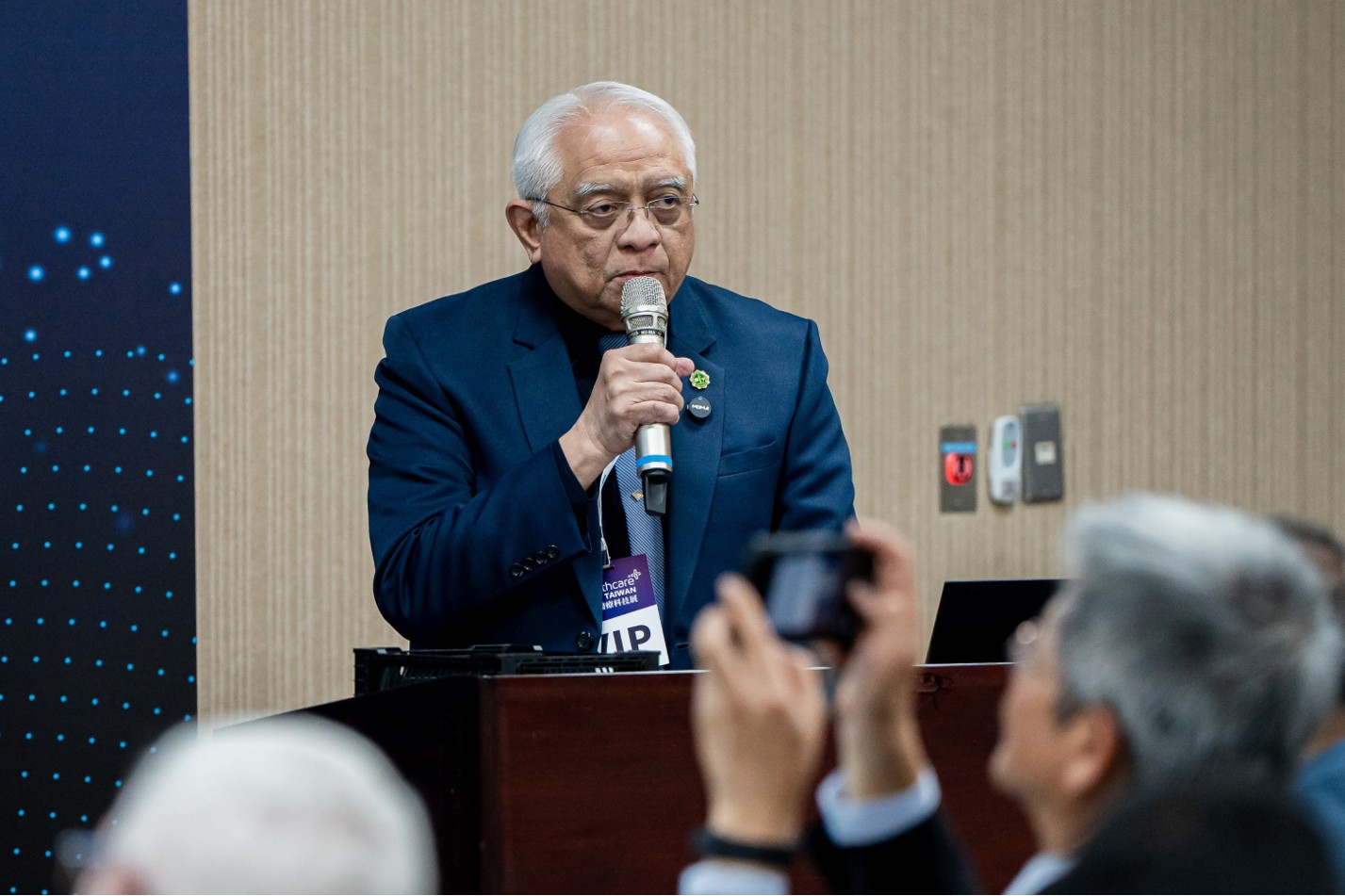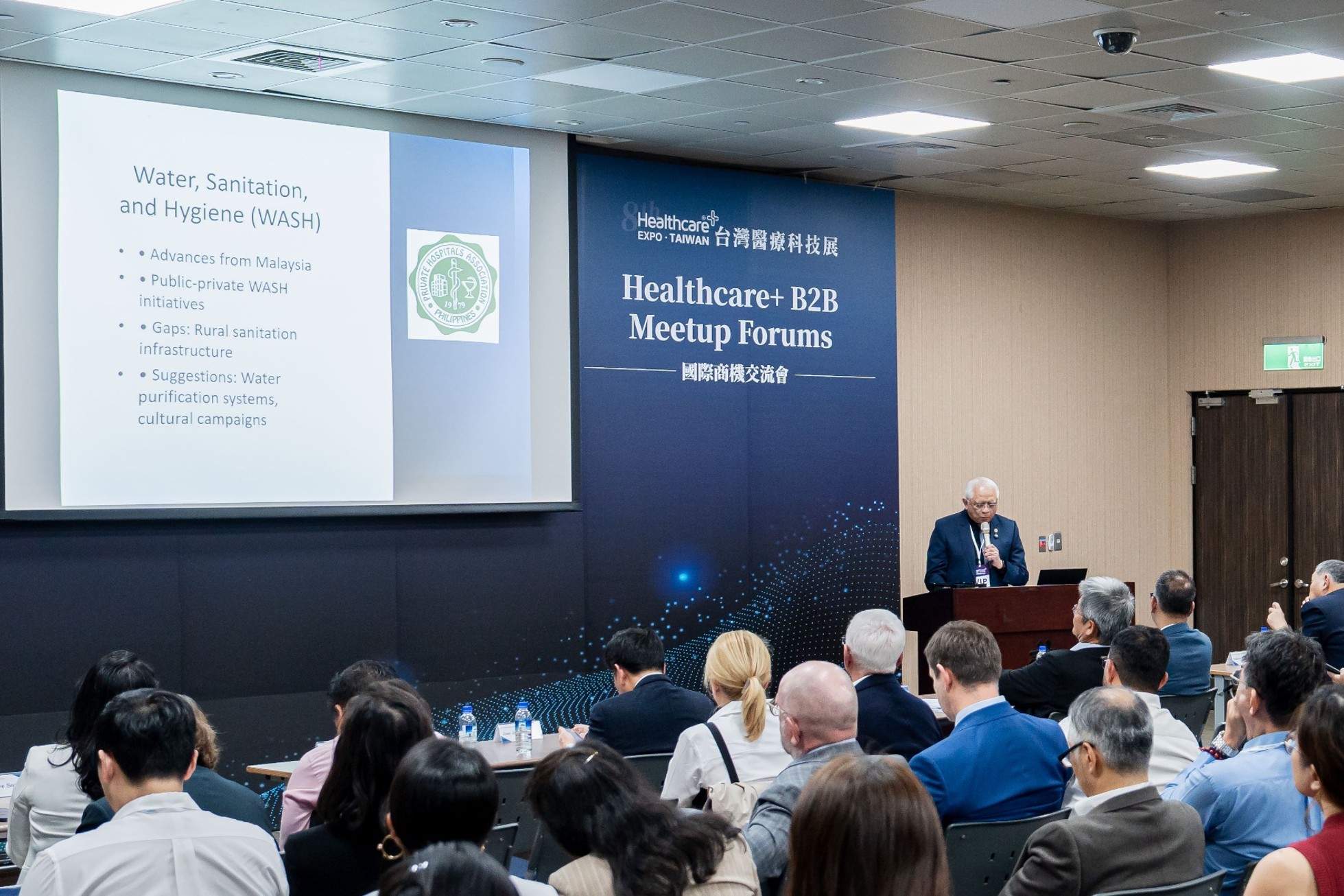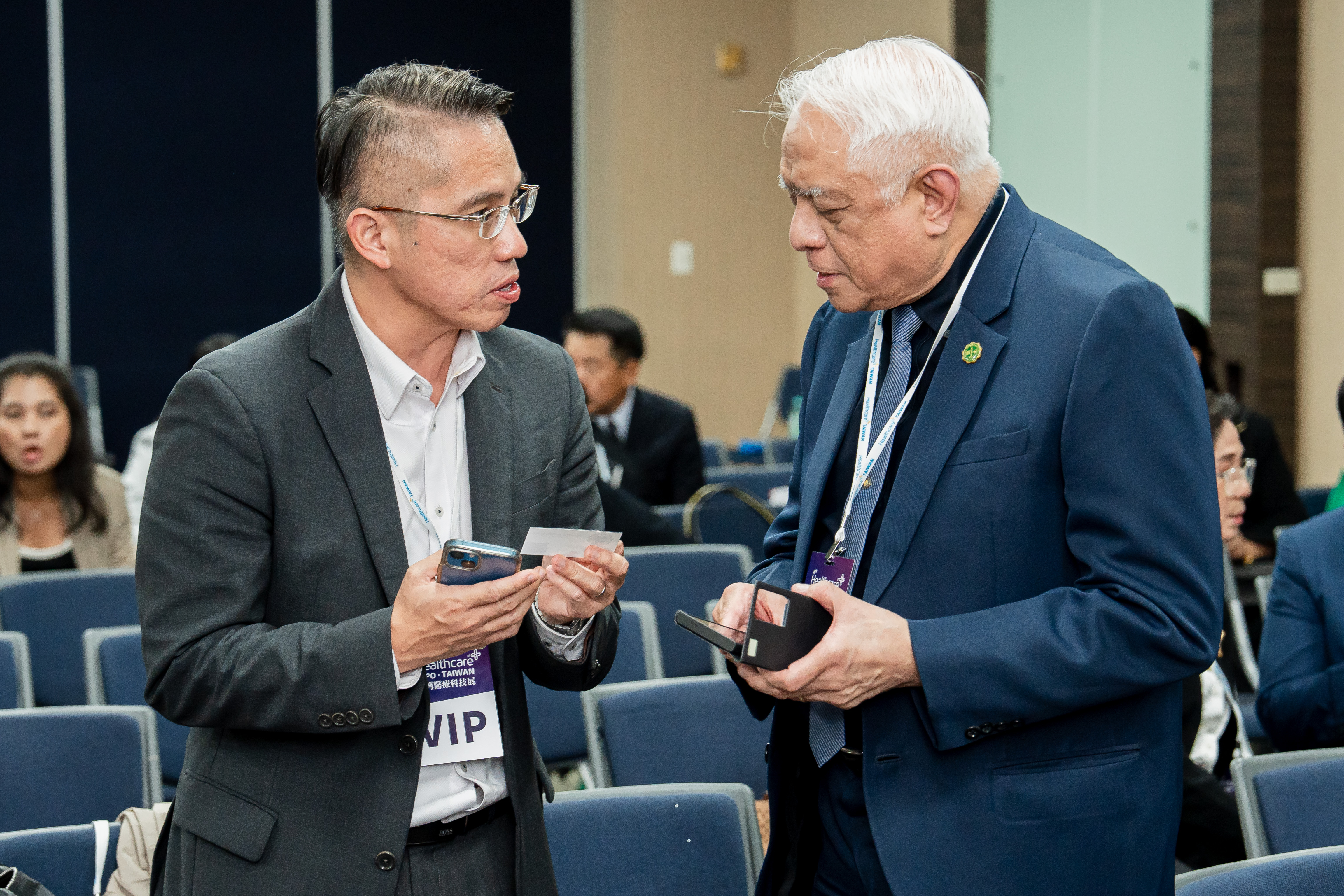
PHAP President Visits Healthcare+ Expo Taiwan, Explores Collaboration in Smart Healthcare, AI Diagnostics, and Medical Talent Exchange
2025-07-13
📣Unlock New Healthcare Partnerships in Asia!
【2025 Healthcare+ Expo Registration Opens Now ▸ https://ibmi.pse.is/7mn2dd 】
Facing challenges of fragmented medical information and rural resource imbalances, the Philippine healthcare system is accelerating its transformation efforts. To solve these long-standing issues, Dr. Jose Rene de Grano, President of the Private Hospitals Association of the Philippines (PHAP), visited Taiwan to conduct an in-depth study during the 2024 Healthcare+ Expo Taiwan. He focused on Taiwan's successful experiences in four key areas: digital healthcare, national health insurance, disaster response, and medical talent development, hoping to leverage Taiwan's model to inject new momentum into Philippine healthcare.


Aiming to address the fragmented medical information and rural resource imbalances in the Philippines, Dr. Jose Rene de Grano, President of the Private Hospitals Association of the Philippines (PHAP), visited the 2024 Healthcare+ Expo Taiwan to study Taiwan's successful models in digital healthcare, national health insurance, disaster response, and medical talent development.
"Taiwan's digital healthcare system is a benchmark in Asia, with comprehensive integration of National Health Insurance (NHI) and electronic medical records," said Dr. de Grano, contrasting it with the Philippine situation. "Our hospitals are using systems from seven different vendors that simply cannot communicate with each other!"
Dr. de Grano sees Taiwan's expertise in information integration as a potential blueprint for the Philippines. He revealed that the Philippines is currently planning to develop telemedicine platforms and hopes to collaborate with Taiwan to jointly develop AI-assisted diagnostic tools to address the healthcare resource disparities caused by the country's island geography.
"The Philippines has over 7,000 islands-it's impossible without technology," Dr. de Grano suggested partnering with Taiwan and international tech giants to design a smart healthcare system suitable for local geographical and economic conditions. He specifically proposed creating a "health communication platform" to make telemedicine centers a lifeline for rural residents.
Beyond technical collaboration, Dr. de Grano expressed deep admiration for Taiwan's national health insurance system. He believes Taiwan's ability to provide high-quality healthcare at low premiums offers valuable lessons for the financially constrained Philippines. Disaster management capabilities were another focus of his visit, with Dr. de Grano praising Taiwan's health emergency response systems and real-time monitoring technologies-capabilities the Philippines urgently needs. He mentioned that the Philippines is initiating preliminary contacts with Taiwanese companies and research institutions to develop predictive analysis cooperation plans for typhoons, earthquakes, and other scenarios.

Recognizing the geographical challenges of the Philippines' numerous islands, Dr. de Grano explored potential partnerships at the Expo to design a smart healthcare system, including a health communication platform for telemedicine and learning from Taiwan's disaster management capabilities.
For talent development, he sees promise in adopting Taiwan's "technology-driven" training model and plans to promote an online learning platform initially focusing on three aspects: electronic medical record operations, telemedicine applications, and AI diagnostic training. Additionally, he revealed plans to launch a medical personnel exchange program, allowing Philippine healthcare workers to intern and study in Taiwan to learn firsthand clinical and management practices.
"We hope to establish a bilateral medical committee to institutionalize policy dialogue and knowledge transfer," Dr. de Grano explicitly extended an invitation for cooperation. He emphasized future hopes for comprehensive collaboration with Taiwan in AI healthcare and smart hospital construction, learning from Taiwan to introduce efficiency and intelligence into Philippine hospitals. From on-site learning to technology adoption, Taiwan's medical technology and policy experience are quietly becoming important guides on the Philippines' path to healthcare reform.